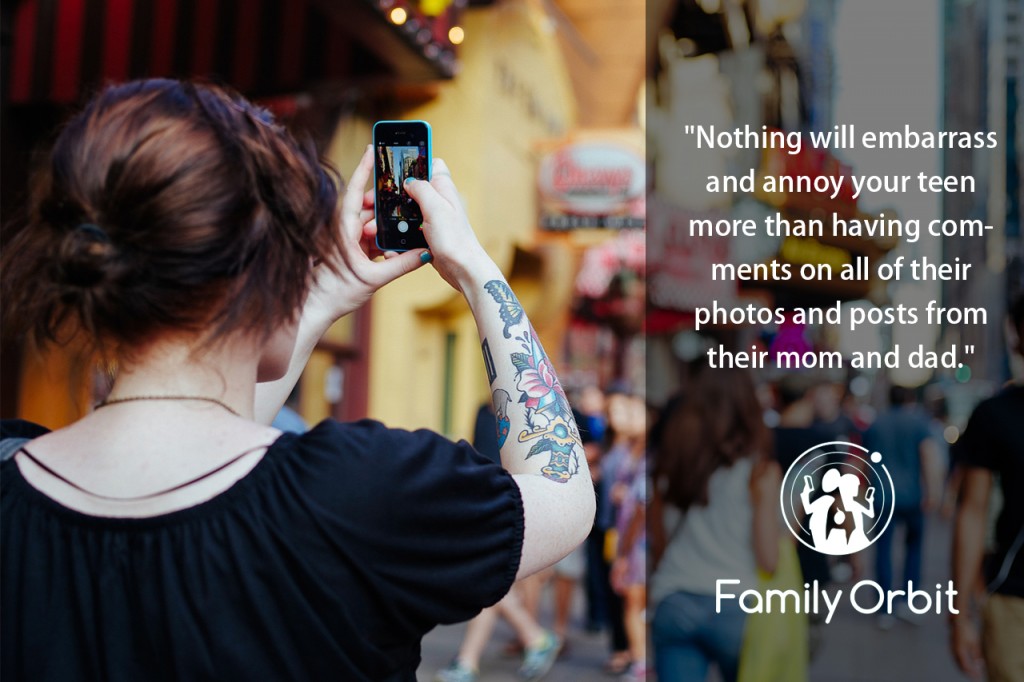With just about everyone having accounts on popular social media sites today, it makes sense that many parents would want to “friend” their own children. Not only does it allow a parent to see what their child is posting and who they are interacting with, but it also seems like a natural way to connect with them. However, when you friend your child, there are some things that you should avoid. Here’s how to handle being “friends” with your teen on social sites like Facebook:
Don’t comment on all of their posts and pictures
Nothing will embarrass and annoy your teen more than having comments on all of their photos and posts from their mom and dad. If they do accept your friend request on social media, have some consideration for the fact that they’re still young and those social sites are where they mainly connect with their peers. Stay in the background and be a silent observer, unless you’re sure that your teen won’t mind you “liking” a post or leaving the occasional comment.
Don’t post messages on their “wall”
Similar to the above, it’s best to avoid posting messages on your child’s public “wall”. Keep your communications with them on social sites private. A lengthy or personal post by a parent is sure to embarrass any teen, and that’s the last thing that you want to do. You want your child to trust you so that you can stay in the loop with their online activity.
Don’t send friend requests to their friends
Again, this is another way to avoid embarrassing and upsetting your child. You may want to send friend requests to the parents of your child’s closest friends, and that is perfectly acceptable and understandable. However, you should not seek out your child’s friends and send them requests. Realize that young people are using social media to connect with one another, and they want a space to communicate that is away from the adults in their lives.
Avoid bringing up a discussion based on their online activity too often
While you may be tempted to ask your child about the new people that they’ve friended or the photos that they’ve posted, it would be best not to unless you have legitimate concerns for their safety and well-being. If you bring up their online activity every evening at the dinner table, not only will they become annoyed, they may also become more secretive. They won’t want to share things on social sites that you can see if they feel like they’ll be questioned often. Keep the conversations regarding their friends and online activities to a minimum.
Pick your battles
There may be times where your child posts or shares content on social media that you find questionable. Ultimately, you have to pick and choose your battles. If you do friend you child on Facebook or other social sites, take the approach of being more of a silent observer. Unless your child is engaging in behavior that concerns you, it’s best to simply stay in the background and appreciate the fact that they are giving you a glimpse into their life online. It will help you to build trust with them, and make it more likely that they’ll communicate with you if something does come up that you really do need to talk about.

